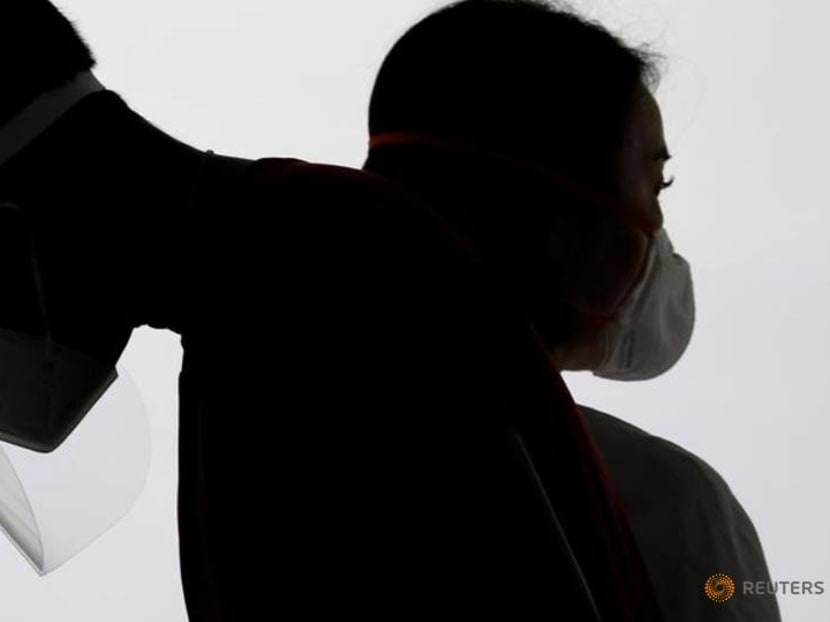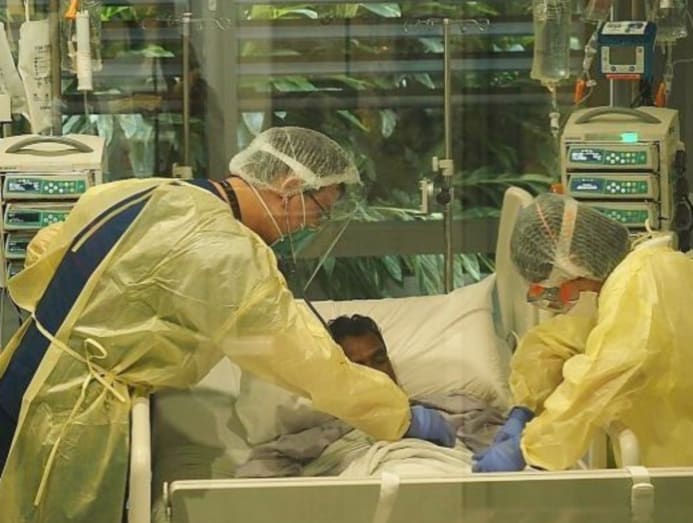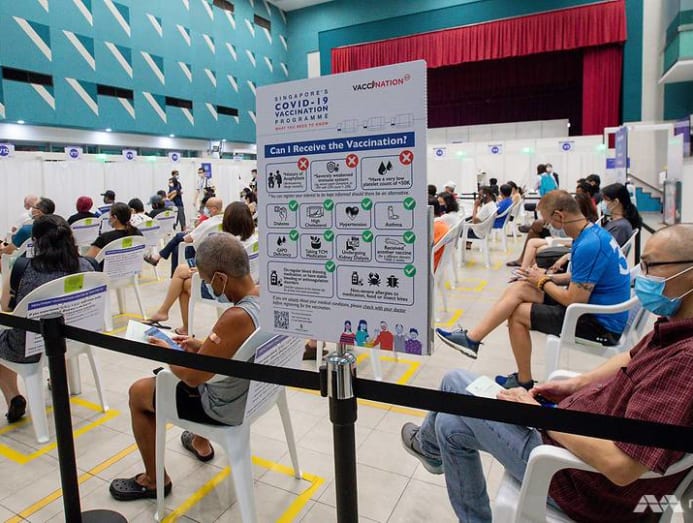Commentary: Healthcare workers need more than just thank you notes from Singapore
Healthcare workers, here and globally, have been a critical last line of defence against a relentless virus but each of us can do our part to help ease their challenges, says Singapore Kindness Movement's Dr William Wan.

SINGAPORE: As an active septuagenarian, it is somewhat sobering to know that nearly 80 per cent of those who passed away in the last 28 days were above 70 years old, according to Health Ministry data.
Singapore reported 18 more COVID-19 deaths on Wednesday (Oct 20), bringing the total virus death toll to 264, against a gloomy backdrop of increasing number of new cases and concerns about overwhelmed hospitals.
Challenges faced by healthcare frontliners – long working hours, manpower shortage, institutional and structural issues – are nothing new.
But the prolonged fight against COVID-19 has undoubtedly added weight on their tired shoulders, even though they soldier on by believing “this is what we train for” as Dr Melvin Chua of Sengkang General Hospital said on CNA's Heart of the Matter podcast.
There’s a limit to how much clapping from our windows or posting thank you notes online can actually do, sincere as we may be.
A doctor said as much in response to a recent social media campaign, that while they are greatly appreciated, battered doctors and nurses can’t “eat thoughts and prayers” nor use them to spend time with loved ones or reduce the stress and toll on their own health.
Instead, they advocated policy and institutional improvements and more importantly, for a change in attitudes toward healthcare workers.

So how can we, members of the public as users and beneficiaries of the healthcare system, do our part to show our support in a concrete way?
GET THE COVID-19 VACCINATION
One of the simplest ways to ease the strain on the healthcare system is to get your COVID-19 shot.
Some have legitimate health issues, such as severe life-threatening allergic reactions, and cannot receive any of the available vaccines.
But there are others who stubbornly refuse to do so out of misguided beliefs or following advice from well-intentioned but misinformed friends.
Worse still are those who advocate unfounded anti-vaccination theories and peddle unproven remedies, such as ivermectin, an anti-parasitic drug – even though health agencies and experts over the world have come out emphatically to warn against it.
As they have clarified, mRNA vaccines don’t alter your DNA, there are no trackers in them and the post-vaccination effects have been studied and deemed safe.
How are Singapore hospitals fighting off a fresh wave of infections, after many months at the frontline? Listen to two doctors discuss dealing with recent surges on CNA's Heart of the Matter:
After the multi-ministry taskforce announced the latest vaccination-differentiated measures, disallowing most unvaccinated people from entering malls and dining in, many such individuals decried the “discrimination” and even started an online petition that got 6,000 signatures before it was removed.
My question to these naysayers is: Why?
By insisting on having your own way and looking at things in such a binary way, we don’t just potentially hurt ourselves, we increase risks to people around us and add stress to our healthcare workers.
Local data suggests that the risk of unvaccinated people getting a severe infection is 14 times higher than that of vaccinated people, according to Singapore’s director of medical services Kenneth Mak.
A quick look at the daily press releases will show that the unvaccinated take up a disproportionate amount of hospital resources in terms of oxygen supplementation or ICU beds.
Most vaccinated persons who get infected have only mild or no symptoms and are unlikely to require hospitalisation.
Those currently ineligible for vaccination, have legitimate health issues or those with poor immune systems whose vaccinations are not always sufficient to help, depend on the rest of us to limit the spread of COVID-19 in the community and keep them safe.
For example, former United States secretary of state Colin Powell passed away on Monday (Oct 18) from complications due to COVID-19, at age 84. Though fully vaccinated, he had multiple myeloma, a blood cancer that reduces the body’s ability to fight infection.
There may only be a small percentage of people who refuse vaccination despite being eligible, while the largest segment of the unvaccinated likely consists of children younger than 12 currently ineligible for the shot.
But in the face of a raging pandemic, every shot in arm counts, so we can lift rules permanently and regain normalcy.
EMPATHY DOESN’T COST US ANYTHING
If we are genuinely concerned for healthcare frontliners, we should heed their calls to be kinder patients under their care.

We are shocked to hear of outrageous harassment directed at healthcare workers. But it should be equally disconcerting to hear their anecdotes of verbal abuse when patients are unhappy with wait times or when they are unable to get non-urgent assistance or information immediately.
Let’s not forget that many healthcare frontliners feel overworked but continue to take on grueling shifts with little time to eat and even go to the bathroom, so much so that one doctor said that they hadn’t “seen the daylight in ages”.
Those lamenting their inability to enter malls and dine in at eateries should remember that the healthcare workers toiling valiantly behind the scenes barely have time to head to the shops themselves or eat something other than a takeaway bento box.
It costs us nothing to alleviate the stressful conditions of their demanding jobs. But it can mean one fewer thing for them to stress about.
BE A MODEL PATIENT
Just over a year ago, I was admitted to a public hospital for five days to investigate a persistent low-grade fever. I made a resolution to be a model patient.
I went in with much gratitude, reminding myself that I am one lucky bloke who has access to a well-equipped hospital with trained and highly professional doctors, nurses, allied health personnel and other healthcare workers – something not easily available to more than half the world and taken too easily for granted in Singapore.
While hospitalised, I was determined to be thankful for everything and be patient with everyone who cared for me. So I was cheerful in my disposition, lavish in my compliments, and lacking in my complaints to all who participated in my time there – from the consultants to the cleaners.
I had a pleasant stay in the hospital and hoped that the fond farewell the staff gave me meant that they had an equally positive experience taking care of me.
We feel empathy and profound gratitude for our healthcare workers. But let us remember to also be responsible and not add on to their patient load, or to be gracious patients that they can appreciate.
Dr William Wan is General Secretary of the Singapore Kindness Movement.













